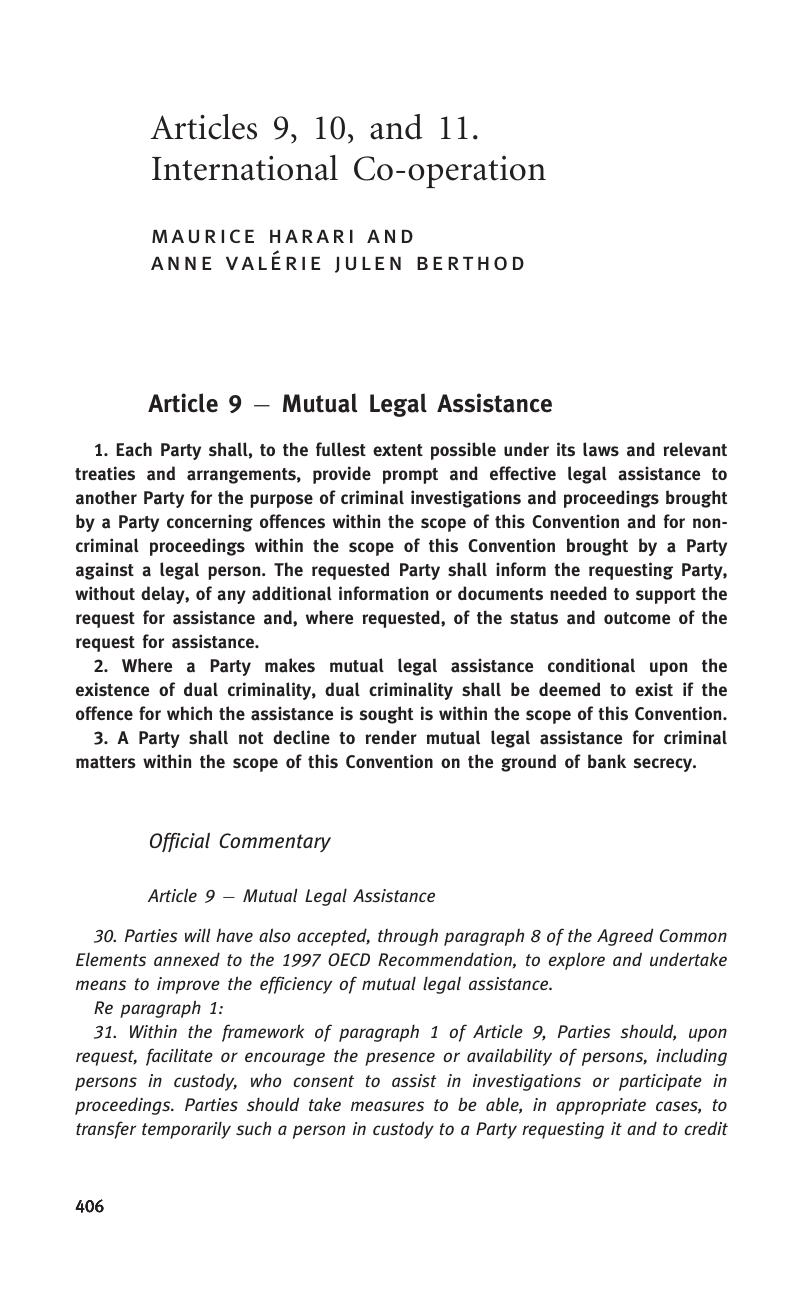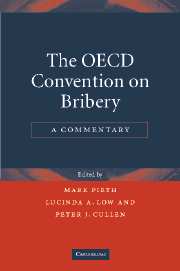Book contents
- Frontmatter
- Contents
- Notes on Contributors
- Preface
- Acknowledgements
- List of Abbreviations
- Official Documents
- PART I INTRODUCTION
- PART II COMMENTARY
- Article 1 The Offence of Bribery of Foreign Public Officials
- Article 2 The Responsibility of Legal Persons
- Article 3 Sanctions
- Article 3(3) Seizure and Confiscation
- Article 4 Jurisdiction
- Article 5 Enforcement
- Article 6 Statute of Limitations
- Article 7 Money Laundering
- Article 8 Accounting
- Article 9–11 International Co-operation
- Article 12 Monitoring and Follow-up
- Article 13–17 Final Provisions
- PART III THE CONVENTION IN PRACTICE
- Annex: Table of Applicable Sanctions in the Twenty-One Parties Reviewed in the Mid-Term Study
- Consolidated Bibliography
- Index
- References
Article 9–11 - International Co-operation
from PART II - COMMENTARY
Published online by Cambridge University Press: 06 July 2010
- Frontmatter
- Contents
- Notes on Contributors
- Preface
- Acknowledgements
- List of Abbreviations
- Official Documents
- PART I INTRODUCTION
- PART II COMMENTARY
- Article 1 The Offence of Bribery of Foreign Public Officials
- Article 2 The Responsibility of Legal Persons
- Article 3 Sanctions
- Article 3(3) Seizure and Confiscation
- Article 4 Jurisdiction
- Article 5 Enforcement
- Article 6 Statute of Limitations
- Article 7 Money Laundering
- Article 8 Accounting
- Article 9–11 International Co-operation
- Article 12 Monitoring and Follow-up
- Article 13–17 Final Provisions
- PART III THE CONVENTION IN PRACTICE
- Annex: Table of Applicable Sanctions in the Twenty-One Parties Reviewed in the Mid-Term Study
- Consolidated Bibliography
- Index
- References
Summary

- Type
- Chapter
- Information
- The OECD Convention on BriberyA Commentary, pp. 406 - 444Publisher: Cambridge University PressPrint publication year: 2007
References
- 1
- Cited by



